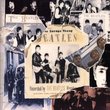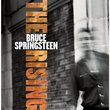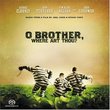| All Artists: Stevie Nicks Title: Trouble in Shangri-La Members Wishing: 0 Total Copies: 0 Label: Reprise / Wea Original Release Date: 1/1/2001 Re-Release Date: 5/1/2001 Genres: Pop, Rock, Classic Rock Styles: Soft Rock, Album-Oriented Rock (AOR) Number of Discs: 1 SwapaCD Credits: 1 UPC: 093624737223 |
Search - Stevie Nicks :: Trouble in Shangri-La
 | Stevie Nicks Trouble in Shangri-La Genres: Pop, Rock, Classic Rock
No Description Available. Genre: Popular Music Media Format: Compact Disk Rating: Release Date: 1-MAY-2001 |
Larger Image |
CD DetailsSynopsis
Product Description No Description Available. Genre: Popular Music Media Format: Compact Disk Rating: Release Date: 1-MAY-2001 Similarly Requested CDs
|
Member CD ReviewsReviewed on 3/28/2007... Classic Stevie Nicks voice--timeless. Reviewed on 10/26/2006... Received as a gift, not a big Stevie Nicks fan, but a decent listen in my mind.
CD ReviewsStevie Nicks, Pure and Simple Gary F. Taylor | Biloxi, MS USA | 10/12/2003 (5 out of 5 stars) "After a stunning career with Fleetwood Mac in the 1970s, Stevie Nicks emerged as one of the hottest solo acts of the music industry in the 1980s with BELLA DONNA and THE WILD HEART. But although she scored a memorable success with Fleetwood Mac on 1987's TANGO IN THE NIGHT, after 1985 the quality of her solo work began to decline. 1989's THE OTHER SIDE OF THE MIRROR offered the memorable "Rooms on Fire" but was disappointing as a whole, and of 1994's STREET ANGEL the less said the better. Her occasional performances with Fleetwood Mac aside, it seemed that her glory days as a solo act were far behind.Then in 2001 Nicks quietly released TROUBLE IN SHANGRI-LA. Working with what seemed a different producer on almost every cut and drawing in supporting talent from the likes of Cheryl Crowe, Nicks stripped herself of her past personas. Gone was Rhiannon, gone was the Welsh Witch, the Gypsy. Gone were the third person lyrics, the ethereal notes, the hard rock flourishes. TROUBLE IN SHANGRI-LA was Stevie Nicks, pure and simple and unadorned. Quite a lot of her long-time fans, who would have preferred Nicks to remain in her Bella Donna persona forever, balked. But quite a few people who had never been fans suddenly reappraised her. And when all was said and done, Nicks garnered some of the finest critical praise of her long career and picked up a Grammy nomination in the process.Opening with a solid rocker on the title cut, TROUBLE IN SHANGRI-LA finds Nicks remarkably unpretentious and completely devoid of the self-indulgence that made THE OTHER SIDE OF THE MIRROR such a disappointment and STREET ANGEL such a disaster. Her voice, always a delicate instrument, has changed, and the high notes are gone and the lower notes have become deeper still--but at both extremes it now possesses an unexpectedly dark richness of tone. Both it, and the emotional tones of her performance, are those of a mature woman in full command of her talents.Some have complained that there is not really a "hit single" track on this album, and in a sense that is true--nothing here jumps ahead of the pack. But that is not because the music is weak; rather, it is because it is all so consistently good. And throughout the entire collection the overall sound creates a somewhat hypnotic quality that gradually draws you deeper and deeper into the artist's skills. Because of this, it would be extremely difficult to pinpoint any one single selection for singular praise; I will say, however, that I find "It's Only Love" particularly fine.When I first sat down to listen to this recording I found myself completely surprised by Nicks' overall approach, which is considerably more disciplined than anything she has previously offered. I was not immediately enthusiastic and I set the recording aside--only to find myself drawn to it again and again, and with each listening discovering more and more in it. And I now think of this as quite possibly Stevie Nicks best overall solo release. Whatever the case, it is certainly her most subtle and most complex effort to date.I had the pleasure of seeing Fleetwood Mac on the SAY YOU WILL tour, and while Nicks did not perform any of the selections from this album (the only selection of her solo work she offered was a knock-out "Stand Back"), I found her live performance with the band very similar in tone to TROUBLE IN SHANGRI-LA: completely unaffected with the focus on the music itself. After some three decades of stardom and one of the most jolting personal roads imaginable, at the end of the day Stevie Nicks has become a musician in her own right. And in an industry that spawns so few of them, that is the highest compliment any one can offer a rock star. The bell has a deeper tone, and it tolls with a more measured note, but it still "rings through the night." Rock on, my lady, rock on.--GFT, Amazon Reviewer--" Stevie Nicks, Witchy Songstress Gregory Evan Binstock | Lutherville, MD United States | 05/09/2001 (5 out of 5 stars) "The Witchy Woman who first twirled her way, scarf-ensconced, to center stage as the smoky vocals behind Fleetwood Mac, has once again proven why she is an American Rock Icon with her latest album, Trouble In Shangri-La. In her first solo attempt since 1994's Street Angel, Nicks has been busy brewing this album for some time now. She has been constantly writing songs and lyrics into her journal, and waiting to go into the studio when the time was right. It was well worth the wait. After recently completing a Fleetwood Mac reunion tour, she took to the studio armed with a diary of songs and a musical entourage with the likes of Sheryl Crow, Macy Gray, and Sarah McLachlan. The product is the unquestionably hypnotizing and varied new project from Ms. Nicks, which is sure to please old-time Stevie fans, as well as new listeners hearing her on the radio for the first time. The best songs on the album are, unsurprisingly, those penned by Nicks herself. No one has been able to pinpoint Nicks' vocal strengths as well as she has. She is a true writer-singer, and sounds most at ease with her own pieces. The title track, and opener of the album, gives us an immediate healthy dose of this straight away. Written and produced by Nicks, and with the vocal backing of longtime Stevie-chanteuses Sharon Celani and Lori Nicks, "Trouble in Shangri-La" is a song with ethereal vocal layering and precise instrumentation. Likewise, the mesmerizing track "Planets of the Universe" is as otherworldly as its title suggests. This track will please the die-hard Fleetwood Mac fans, who still hear echoes of Stevie's heart-wrenching vocals on hits like the insatiable "Rhiannon" and "Silver Springs." In the latter, Nicks proclaimed in the song's ending, "I follow you down 'till the sound / Of my voice will haunt you / You'll never get away from the sound / Of the woman who loves you." In "Planets," Nicks promises that same endless torture, acting again as an uncompromising predictor, "You will never love again / The way you love me / You will never rule again / The way you ruled me / You will never change again / The way you're changing."While the true-blue Nicks songs are brilliant, this album is undeniably a joint effort. Stevie's collaboration shines through in this album, and helps to give each track a unique vibe. Her duet with larger-than-life Macy Gray is particularly noteworthy. How is it possible for Stevie to find a duettist with as much sassy scratch as she has? Well, she did, with Miss Gray. The two croon together in a surprisingly soothing blend on the exotic track, "Bombay Sapphires." Stevie said of Gray in a press release, "She's like a walking tornado. She's a total blast. We had a great time working on the song." A surprise-hit on the album is Nicks' work with Dixie Chick Natalie Maines. While their joint effort could have produced a lackluster country song, they instead created a country-injected rock tune, "Too Far From Texas," featuring a potent harmony of the two songstresses.Most remarkable of the collaborations, however, is Stevie's partnership with Sheryl Crow. While Crow's two songs written for Stevie remain some of the album's weakest, it is her work on production and concept that helped make the album a cohesive and expressive effort. Nicks has said of Crow, "Our connection is deep... deeper than I can even put into mere words," and Crow has returned the sentiment, stating, "To even be in the same room with Stevie was a dream come true for me. To work with her was beyond description. It was extraordinary." Their mutual admiration helped to form the album's overall structure and consistency.While Crow did her share of production, a large amount was in the hands of John Shanks, who also wrote one of the album's catchiest hits, the radio-happy "Every Day."Appropriately, Nicks ends her album with the contemplative and wistful song, "Love Is." Detailed with a potpourri of instrumentation and vocal backing from Sarah McLachlan, it serves not only as the album's most expressive piece, but also as a reminder that you've been reading pages torn from the diary of a quiet artist.In a time where very few artists write the music they perform, it is a gem when someone does it and does it well. With Shangri-La, Stevie Nicks has taken a comfortable seat in a throne of legendry. Since the early 1970's, Stevie has compelled us with her evocative vocal prowess and songwriting, and we can only be a captive audience, and hope that she continues to share with her talents with us."
|

 Track Listings (13) - Disc #1
Track Listings (13) - Disc #1








